#CensorshipLaw México Savage dictatorship in the 21st century. As in North Korea, Venezuela, Russia, and Nicaragua.

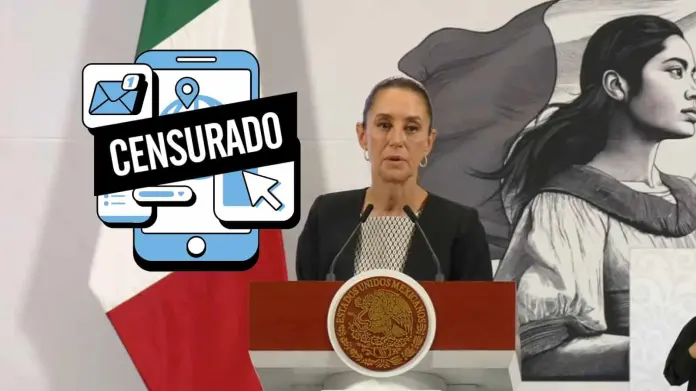

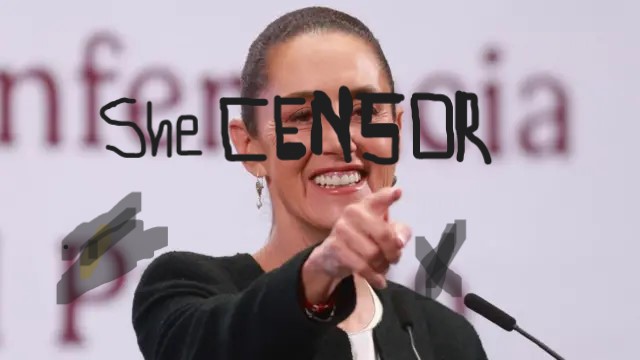
Expansión de tú presencia como asociado. Savage Dictatorship in North Korea (Para ver Este informe experto pulsa traducir al español).
#CensorshipLaw México Savage dictatorship Alert/ Executive Summary
The Democratic People’s Republic of Korea (DPRK), commonly known as North Korea, operates as a totalitarian dictatorship under the Kim family dynasty. This report investigates the multifaceted nature of this regime. Examining its political structure, egregious human rights record, the manipulation of its legal system. The severe suppression of freedoms, the pervasive state surveillance. The dire economic conditions endured by its populace, the widespread international condemnation it faces, and the numerous documented instances of its brutal repression and human rights abuses. The findings reveal a state where absolute power is concentrated within a single family and the ruling party, fundamental rights are systematically denied, and the population lives under constant fear and hardship. The international community has repeatedly condemned these conditions and continues to grapple with effective strategies to address this enduring crisis.

He censor El censurador
#CensorshipLaw México Savage dictatorship Alert/ Introduction: Understanding the “Savage Dictatorship”
The term “dictatorship” generally refers to a form of government in which absolute power is concentrated in a single ruler or a small clique. Typically maintained through force and suppression of opposition. When coupled with the adjective “savage,” it implies a regime characterized by extreme cruelty, brutality, and a complete disregard for human rights and dignity. This report aims to analyze the North Korean state through this lens, examining the available evidence to determine the extent to which it embodies the characteristics of a “savage dictatorship.”
Claudia and Morena are building their savage dictatorship, staging a coup against all Mexicans by seizing judicial power. The Mexican people are demonstrating this June 1st.
To achieve this, the report will delve into the intricacies of North Korea’s political structure, meticulously document the human rights situation based on credible reports, scrutinize the function of its legal and justice system, assess the degree of political freedom and civil liberties afforded to its citizens, explore the pervasive role of state surveillance and control, analyze the impact of its economic conditions on the population, synthesize international perspectives and criticisms of the regime, and highlight reported instances of political repression and human rights abuses. By synthesizing information from human rights organizations, academic analyses, news reports, and international bodies, this report seeks to provide a comprehensive understanding of the realities within North Korea.
#CensorshipLaw México Savage dictatorship/ The Iron Fist: Political Structure and Leadership in North Korea
#CensorshipLaw México Savage dictatorship, WARNING, Formal Power Structure
North Korea is constitutionally defined as a unitary one-party socialist republic. The country’s supreme governing body, at least on paper, is the Supreme People’s Assembly (SPA), a unicameral legislature comprising 687 members who are theoretically elected every five years by universal adult suffrage. However, in practice, these elections are non-competitive, offering only single candidates who are pre-selected by the ruling Korean Workers’ Party (KWP). The SPA convenes for short sessions, typically once or twice a year, primarily to endorse proposals put forth by the government. The day-to-day legislative functions are largely handled by the SPA’s Presidium, or Standing Committee, a 15-member body chosen from within the SPA.
The executive branch of the North Korean government is the Cabinet, which serves as the administrative and executive body and is headed by a Premier appointed by the SPA. While the President of the SPA holds the titular position of head of state, a more powerful role is that of the President of the State Affairs Commission, currently held by Kim Jong Un. This concentration of key leadership roles, particularly the chairmanship of the State Affairs Commission and the General Secretaryship of the WPK, in the hands of Kim Jong Un underscores the highly centralized nature of power.
This dual role allows Kim Jong Un to control both the state and the ruling party, reinforcing his supreme authority. The formal structure of the North Korean government, with its legislative, executive, and judicial branches, presents a facade of a functioning state. However, the reality of one-man leadership and the pervasive control of the KWP effectively undermine this image. The near-unanimous approval of government proposals by the SPA without any meaningful debate or modification further illustrates the lack of genuine legislative power and highlights the KWP’s overarching control.
#CensorshipLaw México, Savage dictatorship Informal Power Structure
In North Korea, all authority ultimately emanates from the Supreme Leader, a position held by Kim Jong Un. The Kim family lineage has been of paramount significance in North Korean leadership since the establishment of the state in 1948. Three generations of the Kim family – Kim Il Sung, Kim Jong Il, and Kim Jong Un – have ruled with absolute authority, establishing one of the world’s longest-running dynastic dictatorships. This hereditary succession is legitimized by the “Mount Paektu Bloodline” ideology, which portrays the Kim family as divinely ordained leaders of the Korean nation. Since assuming power, Kim Jong Un has moved swiftly to consolidate his authority, employing purges and reshuffling key personnel within the party and military structures. This suggests a continuous effort to eliminate potential rivals and reinforce personal control, indicative of a leadership that prioritizes its own security and unchallenged dominance.
The Korean Workers’ Party (KWP) holds a position of legal supremacy within the North Korean political system. As the sole ruling party, the KWP dictates all political activities and policies within the state, with other minor parties existing merely in nominal terms and legally bound to accept the KWP’s leading role.
The KWP exerts significant control over the electoral system, policy direction through its powerful Politburo, and the selection of candidates for all elections. The enduring hereditary rule of the Kim family. Combined with the absolute authority vested in the Supreme Leader and the pervasive dominance of the KWP, underscores the highly centralized and personalized nature of the North Korean power structure, a hallmark of a totalitarian dictatorship.
Ideology and Governance. Alert; #CensorshipLaw México Savage dictatorship
The official state philosophy of North Korea is Kimilsungism-Kimjongilism, an ideology that has evolved from Marxism-Leninism and now emphasizes the principles of Juche (self-reliance) and loyalty to the Kim family. Juche, rooted in the specific conditions of North Korea, promotes national independence and development through the efforts of the popular masses. Under Kim Jong Un, there has been a stated shift towards “people-first politics,” succeeding his father’s “military-first” philosophy.
The North Korean political system is built upon the principle of centralization, with the WPK General Secretary, Kim Jong Un, wielding significant control over key party organs. The emphasis on Juche and the elaborate cult of personality surrounding Kim Il Sung, Kim Jong Il, and now Kim Jong Un, serves as a crucial mechanism for legitimizing the regime’s actions and maintaining strict ideological control over the population. By promoting a unique ideology centered on self-reliance and the deification of the Kim family, the regime seeks to cultivate a distinct national identity and provide justification for its isolationist policies and absolute rule.
ALERT: #CensorshipLaw México Savage dictatorship. A Chronicle of Cruelty: The Human Rights Catastrophe
Restrictions on Freedoms
The North Korean government imposes severe and pervasive restrictions on the fundamental freedoms of its citizens. Freedom of expression and information are virtually non-existent, with the state maintaining absolute control over all media outlets. Accessing any form of unsanctioned media, particularly content originating from South Korea, is strictly prohibited and can result in severe punishments, including lengthy labor sentences and even the death penalty. This complete control over the information landscape prevents citizens from accessing outside perspectives and reinforces the regime’s propaganda.
Freedom of movement is also severely curtailed, both within North Korea and internationally. Unauthorized travel outside the country is considered an act of “treachery against the nation” and is punishable by death. Border guards operate under shoot-on-sight orders for anyone attempting to cross without permission. Even within North Korea, travel between provinces requires official permits, which are difficult to obtain, effectively trapping citizens within their designated areas.
The rights to freedom of association and assembly are systematically denied. All organizations, including political parties, trade unions, and civil society groups, are state-controlled. Unauthorized gatherings or assemblies are strictly prohibited and face harsh punishment, including imprisonment.
Despite constitutional guarantees, freedom of religion does not exist in practice. Individuals caught practicing or spreading religions not sanctioned by the state, such as Christianity, face severe penalties, including life sentences in political prison camps or even public execution. The regime views unauthorized religious activities as a threat to its ideological monopoly and the cult of personality surrounding the Kim family.
The systematic denial of these fundamental freedoms across all aspects of life underscores the regime’s absolute control and its intolerance for any form of dissent or independent thought. By suppressing basic rights like expression, movement, association, and religion, the government aims to eliminate any potential challenges to its authority and maintain complete obedience from the population.WARNING: #CensorshipLaw México Savage dictatorship.
Detention and Treatment
Arbitrary arrests and detention are routine practices in North Korea, often carried out without any semblance of due process. Perceived opponents of the government and those deemed disloyal are frequently sent to secretive political prison camps known as kwanliso, located in remote regions. Conditions within these camps are horrific, characterized by systematic torture and other ill-treatment, starvation rations, and forced labor. Collective punishment is also employed, with entire families being imprisoned for the alleged transgressions of one member.
Numerous reports detail the use of torture and inhumane conditions in various detention facilities. Former detainees have described being subjected to severe beatings, electric shock, prolonged periods of exposure to the elements, and psychological abuse. Women prisoners are particularly vulnerable to sexual violence. The North Korean government continues to deny the existence of these political prison camps. The widespread use of arbitrary detention, torture, and inhumane treatment in these facilities highlights the regime’s brutality and its willingness to inflict extreme suffering to maintain absolute control over its citizens. These practices serve as a constant and terrifying reminder of the consequences of defying the government, effectively silencing dissent and preventing any organized opposition.
Forced Labor and Exploitation
The North Korean government systematically extracts forced, unpaid labor from its citizens to carry out infrastructure projects, government-ordered campaigns, and other public work projects. This practice extends to women and children through state-controlled organizations like the Women’s Union and schools. Additionally, North Korean workers are often sent abroad to generate revenue for the state, with the vast majority of their wages confiscated by the government. This institutionalized system of forced labor is a key element of the regime’s control over the population and a significant source of income for the state. By compelling its citizens to work under duress and without fair compensation, the government not only exploits their labor for economic gain but also reinforces their dependence on the state and severely limits their ability to engage in any independent economic activities.
Public Executions and Killings
Reports from human rights organizations and defectors consistently document instances of arbitrary or unlawful killings, including extrajudicial executions, carried out by the North Korean government or its agents. These executions target a wide range of individuals, including political prisoners, opponents of the government, asylum seekers forcibly returned from other countries, and even those accused of seemingly minor offenses. Public executions are frequently conducted to instill fear and maintain control over the population.
There have been numerous reports of public killings for offenses such as operating illegal beef distribution rings or watching and distributing foreign media, particularly South Korean dramas. The state also subjects ordinary citizens, including children on school field trips, to witness these gruesome events. The prevalence of public executions underscores the extreme ruthlessness of the regime and its willingness to employ the ultimate punishment for a broad spectrum of perceived transgressions, serving as a stark warning to the population about the severe consequences of defying the government.
#CensorshipLaw México Savage dictatorship. Justice Denied: The Legal and Justice System as a Tool of Oppression
Legal Framework and Reality
The legal system of North Korea is a codified civil law system, drawing influences from Japanese and Soviet legal traditions and operating under the framework of the Socialist Constitution. The judicial structure comprises a three-tier system, consisting of the Central Court, provincial courts, and county courts, with judicial affairs overseen by the Central Procurator’s Office. Despite this formal framework, the judiciary in North Korea lacks independence and does not practice judicial review.
Security forces frequently interfere with judicial proceedings, and the outcomes of most cases, particularly those with political implications, are often predetermined. Ultimately, the legal system in North Korea functions as an instrument of state power, serving the interests of the authoritarian government rather than upholding the principles of justice. The absence of judicial independence and the pervasive control of the ruling party over the courts signify that legal processes are often a mere formality, employed to legitimize the punishment of individuals deemed disloyal or threatening to the regime.
Due Process and Fair Trials
Fundamental principles of due process and fair trials are systematically denied in North Korea. Access to information regarding formal criminal justice procedures is limited, and outside observers face significant restrictions in accessing the legal system. In political cases, trials are often dispensed with altogether, with individuals being sent directly to political prison camps without any formal charges or legal representation. Even when trials do occur, government-assigned lawyers typically play a perfunctory role, often focusing on explaining the defendant’s motives rather than mounting a substantive legal defense.
The presumption of innocence is not upheld, and outcomes are frequently influenced by bribery and personal connections. This pervasive lack of due process and fair trial guarantees underscores the arbitrary nature of the justice system, highlighting its role as a tool for political control and punishment rather than a mechanism for ensuring fairness and accountability. The absence of transparency, the lack of genuine legal representation, and the reliance on extra-legal factors like bribery all point to a system where justice is not served, and individuals are highly vulnerable to arbitrary state action.
Political Prison Camps (Kwanliso)
North Korea operates a network of clandestine political prison camps, known as kwanliso, where individuals perceived as opponents of the government are routinely sent. Within these remote camps, prisoners endure horrific conditions, including systematic torture and other forms of ill-treatment, starvation rations, and relentless forced labor. The regime employs collective punishment, extending the penalties to the families of those deemed disloyal, who are often imprisoned alongside the accused. Despite overwhelming evidence from defector testimonies and satellite imagery, the North Korean authorities continue to deny the existence of these camps.
The establishment and operation of kwanliso, where individuals and their families are subjected to such inhumane conditions without any semblance of due process, stand as a stark and brutal manifestation of the regime’s intolerance of dissent and its commitment to maintaining absolute control through fear and repression. These camps serve as a central instrument of political repression, effectively eliminating any potential opposition and fostering a climate of pervasive fear throughout North Korean society.
Law Enforcement
Internal security in North Korea is primarily the responsibility of two powerful organizations: the Ministry of Social Security and the State Security Department. Both of these agencies, while formally government organs, are under the tight control of the ruling Workers’ Party, operating through the Justice and Security Commission and a pervasive network of party penetration at all levels. Augmenting this formal security structure is an extensive and deeply embedded system of informants throughout North Korean society. The Ministry of Social Security is tasked with maintaining law and public order, investigating common criminal cases, managing the prison system, and monitoring citizens’ political attitudes.
The State Security Department, often referred to as North Korea’s secret police, carries out a wide range of counterintelligence and internal security functions, including searching out individuals accused of anti-government activities and economic crimes, and it also oversees the network of political prison camps. This extensive law enforcement apparatus, encompassing both overt security forces and a covert network of informants, ensures constant surveillance and control over the North Korean population, effectively suppressing any potential challenges to the authority of the regime.
#CensorshipLaw México Savage dictatorship. Chains of Control: Suppression of Political Freedom and Civil Liberties
#CensorshipLaw México Savage dictatorship, COMPARATIVE. Political Participation
North Korea operates as a de facto one-party state, where the Korean Workers’ Party (KWP) holds a monopoly on political power. While a few minor political groups legally exist, they are all members of the Democratic Front for the Reunification of the Fatherland (DFRF), a coalition dominated by the KWP. Consequently, there is no realistic opportunity for any genuine political opposition to emerge or gain power through elections. All candidates for the Supreme People’s Assembly (SPA) are preselected by the DFRF, and they typically run unopposed. Voting is compulsory for all citizens aged 17 and over, with turnout rates consistently approaching 100 percent.
This elaborate electoral framework, while seemingly democratic, serves primarily as a means to legitimize the incumbent leadership and register assent for the party’s policies, rather than providing citizens with any meaningful political choice. Any expression of political dissent or opposition is strictly prohibited and harshly punished, ensuring the KWP’s and the Kim family’s continued and unchallenged rule. The complete control exerted over the political process, from the selection of candidates to the mandatory participation in elections, effectively ensures that the ruling party and the Kim family maintain absolute power, devoid of any genuine political participation or representation of the citizens’ will.
!CensorshipLaw México Savage dictatorship, COMPARATIVE. Freedom of Expression and Belief
Freedom of expression and belief are severely suppressed in North Korea. The government maintains absolute control over all media outlets, including television, radio, and print publications. Independent media does not exist, and all content is strictly supervised and censored by the state. Access to information from the outside world is heavily restricted, with severe punishments, including imprisonment and execution, for consuming or distributing foreign media.
Although the constitution nominally guarantees freedom of religion, this right is not respected in practice. The state actively persecutes individuals practicing religions not sanctioned by the government, including Christians, Buddhists, and followers of shamanism, subjecting them to harsh punishments such as imprisonment in labor camps and even execution. The regime prioritizes the state ideology and the cult of personality surrounding the Kim family, suppressing any alternative belief systems. This absolute control over all forms of expression and belief ensures that the regime’s narrative remains unchallenged, effectively eliminating any space for independent thought or dissenting opinions.
Freedom of Movement and Association
Freedom of movement is severely restricted in North Korea. Citizens are prohibited from traveling between provinces or abroad without explicit prior approval, and such restrictions are strictly enforced. The government maintains tight control over its borders, with severe penalties for those attempting to leave the country without permission, including shoot-on-sight orders. Similarly, freedom of association is non-existent. There are no legal non-governmental organizations or associations other than those created and controlled by the state and the ruling party. Workers do not have the right to form or join independent unions, bargain collectively, or strike. This pervasive denial of freedom of movement and association effectively prevents citizens from organizing independently, accessing diverse perspectives, or challenging the regime’s authority, thus solidifying the state’s comprehensive control over their lives.
#CensorshipLaw México Savage dictatorship, COMPARATIVE. The All-Seeing Eye: State Surveillance and Social Control
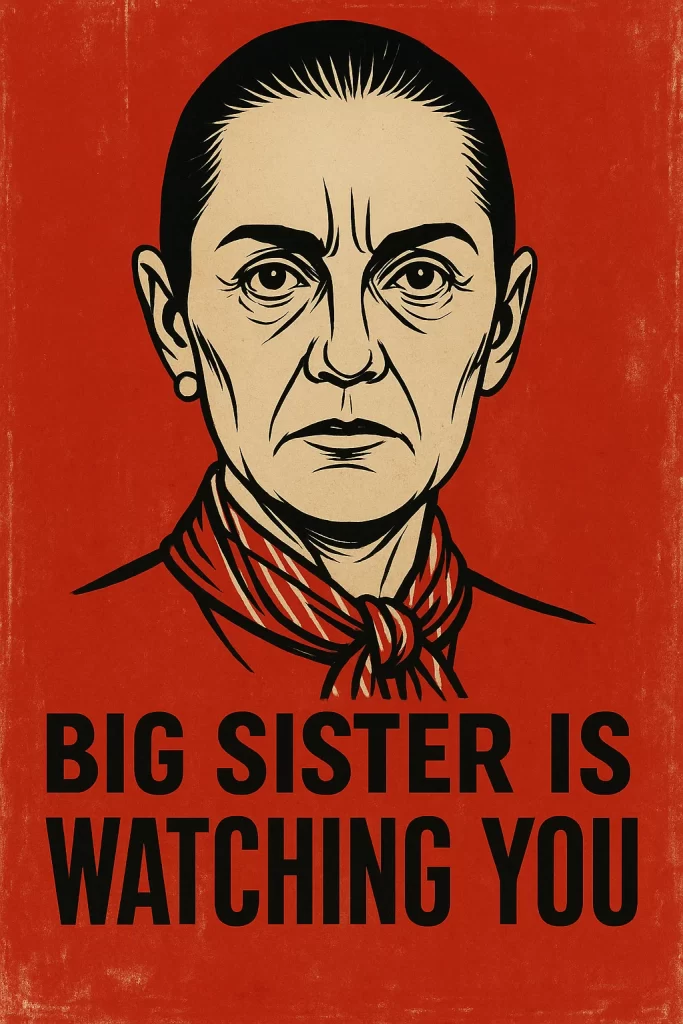
Pervasive Surveillance Mechanisms
Mass surveillance is a routine and deeply entrenched practice throughout North Korea. The government operates a vast network of informants who are tasked with monitoring and reporting any suspicious or subversive behavior among their fellow citizens. This surveillance extends beyond human intelligence, with authorities employing wired microphones, wiretapping of phones, and even outdoor microphones to eavesdrop on conversations. All computers are subject to random checks by authorities and must be registered with the government, with internet access severely restricted to a select few. The use of surveillance cameras has been proliferating, particularly in schools, workplaces, and public areas, with reports indicating the deployment of facial recognition technology. This pervasive surveillance apparatus fosters an environment of constant scrutiny and fear, compelling citizens to exercise extreme caution in their words and actions.
Social Control Mechanisms
The North Korean government employs a multi-faceted approach to maintain social control over its population, utilizing ideological, physical, and institutional mechanisms. A key component of this system is the inminban, neighborhood units comprising 20-40 families, overseen by a local leader who assists authorities in surveillance and control. The songbun system, a discriminatory socio-political classification based on perceived loyalty to the regime, significantly impacts individuals’ life opportunities, including employment, housing, and education. Strict censorship of all media and information sources further reinforces the regime’s control, limiting citizens’ access to outside perspectives. These comprehensive social control mechanisms ensure the regime’s authority over virtually every aspect of its citizens’ lives.
Challenges and Limitations of Surveillance
Despite the extensive and pervasive nature of the state surveillance apparatus in North Korea, it is not without its challenges and limitations. While the network of human intelligence is vast, the state is not “all-seeing,” and some spaces still exist where individuals can engage in illicit activities or express private criticism. Corruption also plays a role, with bribery sometimes enabling citizens to circumvent surveillance and punishment for certain infractions. The implementation of digital surveillance technologies also faces limitations due to the country’s unreliable electricity supply and the regime’s focus on using these technologies to monitor its own security forces in an attempt to curb corruption. These imperfections and workarounds within the surveillance system suggest that while the regime’s control is indeed severe, it is not absolute, and citizens continue to find ways to navigate and sometimes circumvent these mechanisms in their daily lives.
#CensorshipLaw México Savage dictatorship, comparative. A Nation in Need: Economic Hardship and Its Human Cost
Current Economic Conditions
North Korea operates under a centrally planned economy, where the state exerts significant control over all means of production and economic development. However, since the economic collapse of the 1990s, informal markets, known as jangmadang, have emerged and now play a crucial role in the daily lives of many North Koreans, providing a vital source of food, goods, and income. The country’s economy has been significantly impacted by decades of international sanctions, imposed primarily in response to its nuclear weapons program and human rights abuses.
Despite some limited market reforms over the years, the government continues to prioritize military spending and the development of heavy industries, often at the expense of the civilian population’s welfare. Recent trends include a significant devaluation of the North Korean won and a rise in inflation, further exacerbating the economic hardships faced by ordinary citizens. This centrally planned system, coupled with the impact of sanctions and the regime’s priorities, has resulted in chronic economic hardship for the majority of North Koreans.
Key Industries and Trade
Key industries in North Korea include military products, mining (coal, iron ore, and other minerals), manufacturing (machinery, chemicals, textiles, food processing), and agriculture (rice, corn, and other crops). China has become North Korea’s overwhelmingly dominant trading partner, accounting for the vast majority of both exports and imports. Due to international sanctions and its policy of self-reliance, North Korea maintains limited trade relationships with other countries. This heavy reliance on trade with China underscores North Korea’s economic isolation and its vulnerability to political and economic shifts in its relationship with Beijing.
Standard of Living and Food Security
The standard of living for the majority of North Koreans is generally low, with widespread poverty and shortages of essential goods. Chronic food insecurity is a major concern, with a significant portion of the population suffering from undernourishment. Reports suggest that the food situation has been worsening, potentially reaching levels not seen since the famine of the 1990s. This widespread poverty and food insecurity highlight the regime’s failure to meet the basic needs of its population, indicating a severe and ongoing humanitarian crisis.
Healthcare Access and Quality
Access to quality healthcare in North Korea is severely limited, with a crumbling healthcare system plagued by shortages of medicines, outdated equipment, and inadequate facilities. While the government officially claims a system of free healthcare for all citizens, in practice, payments are often required for medical services, and many North Koreans resort to self-medication or seeking remedies in informal markets. This poor state of the healthcare system further exacerbates the suffering of the population, leaving them vulnerable to illness and lacking access to essential medical care.
Impact on Population
The dire economic conditions in North Korea have had a profound impact on its population. Low birth rates and an aging population pose potential challenges to the country’s future labor supply and economic vitality. The regime’s reliance on widespread forced labor, including the mobilization of youth and women, reflects the severity of labor shortages in key sectors like agriculture and mining. These economic hardships contribute to a cycle of poverty and limited opportunities, further straining the resilience and well-being of the North Korean people.
Voices of Condemnation: International Perspectives and Criticisms
United Nations
The United Nations has consistently condemned the systematic, widespread, and gross human rights violations occurring in North Korea through numerous resolutions. A landmark report by the UN Commission of Inquiry in 2014 concluded that the North Korean government has committed crimes against humanity, including extermination, murder, enslavement, torture, imprisonment, rape, and other forms of sexual violence, as well as forced abortions. The UN has also expressed grave concerns regarding the widespread food insecurity and malnutrition affecting a significant portion of the North Korean population. The organization has repeatedly called for stronger international efforts to ensure accountability for the government’s egregious human rights violations.
United States
The United States government has consistently taken a strong stance against the North Korean regime’s human rights abuses. North Korea has been designated as a “Country of Particular Concern” under the International Religious Freedom Act due to its severe violations of religious freedom. The US State Department regularly publishes detailed reports documenting the extensive range of human rights abuses occurring in the country, including extrajudicial killings, enforced disappearances, torture, and forced labor. The US government has also implemented various initiatives, such as radio broadcasting, to promote human rights and freedom of information within North Korea.
South Korea
As a direct neighbor sharing a long history and cultural heritage, South Korea has expressed deep and ongoing concern regarding the dire human rights situation in North Korea. The South Korean government actively monitors and analyzes the situation, including through comprehensive surveys of North Korean defectors to gain insights into the realities of the North Korean economy and society. South Korea has consistently called for improvements in North Korea’s human rights record and has supported international efforts to address these issues.
European Union
The European Union has strongly condemned the persistent and egregious human rights violations in North Korea, including those that may constitute crimes against humanity. The EU has imposed sanctions on numerous individuals and entities deemed responsible for these abuses and for the country’s weapons of mass destruction programs. The EU actively supports UN resolutions addressing the human rights situation in North Korea and continues to advocate for accountability and an end to the systematic suppression of fundamental rights.
Academic Analysis
Academic analyses from various international perspectives consistently depict North Korea as a highly repressive and isolated totalitarian state characterized by severe human rights violations and a unique political and economic system. These analyses consistently highlight the hereditary dictatorship, the dominant role of the Kim family and the KWP, the severe restrictions on freedoms, and the dire economic situation faced by the population.
The Unseen Suffering: Documented Instances of Repression and Abuse
Numerous instances of severe human rights abuses have been documented by organizations like Human Rights Watch and Amnesty International. These include public executions for offenses as minor as watching South Korean dramas , horrific accounts of torture and ill-treatment in detention facilities based on defector testimonies , and widespread forced labor, with even children being compelled to work in various sectors. The regime has also intensified its crackdown on cross-border communications, imposing severe punishments, including imprisonment, for contacting the outside world. Furthermore, the practice of collective punishment, where entire families are held responsible and penalized for the actions of one member, remains prevalent. These documented instances provide stark and compelling evidence of the severe human rights violations that are a daily reality for the people of North Korea, illustrating the profound human cost of the regime’s oppressive policies.
Conclusion: The Enduring Legacy of a Savage Dictatorship
The evidence presented in this report paints a clear picture of North Korea as a savage dictatorship. The regime, under the absolute control of the Kim family and the Workers’ Party of Korea, systematically denies its citizens fundamental rights and freedoms. The political structure is a tightly controlled hierarchy with no space for dissent or genuine participation. The human rights situation is catastrophic, marked by severe restrictions on expression, movement, association, and belief, as well as widespread arbitrary detention, torture, forced labor, and public executions.
The legal and justice system serves as a tool of oppression, denying due process and fair trials. Pervasive state surveillance and intricate social control mechanisms ensure a climate of constant fear and obedience. The dire economic conditions, exacerbated by international sanctions and the regime’s priorities, leave a significant portion of the population in poverty and facing chronic food insecurity and inadequate healthcare. The international community has repeatedly condemned these conditions, yet the legacy of this brutal dictatorship endures, inflicting immense suffering on the North Korean people.
One response
-
What do you think about the other savage dictatorships?
Talk and spread Platicar difundir
Recommendations
Facilitate Humanitarian Aid with Transparency: While acknowledging the complexities and potential for misuse, the international community should explore ways to provide humanitarian assistance to the North Korean people, particularly addressing food insecurity and healthcare needs, while ensuring robust monitoring and transparency in the distribution process.
Maintain and Strengthen International Pressure: The international community, including the UN, US, EU, and South Korea, should maintain and strengthen diplomatic and economic pressure on the North Korean government to improve its human rights record. This includes enforcing existing sanctions and considering targeted sanctions against individuals and entities responsible for human rights abuses.
Enhance Accountability Mechanisms: Efforts should be intensified to ensure accountability for past and ongoing human rights violations in North Korea. This could involve supporting initiatives to collect and preserve evidence of abuses, exploring avenues for referral to the International Criminal Court, and pursuing domestic legal options such as universal jurisdiction.
Prioritize Human Rights in Negotiations: Human rights concerns must be placed at the forefront of any future negotiations or dialogues with North Korea regarding its military policies and weapons programs. Security issues and human rights abuses should be treated as interconnected and inseparable.
Expand Access to Information: Governments and international organizations should work to increase the flow of uncensored information into North Korea through various means, including radio broadcasts, leaflets, and digital technologies. Providing access to outside information can empower the North Korean people and challenge the regime’s propaganda.
Support North Korean Refugees and Defectors: Countries should uphold their obligations under international law to protect North Korean refugees and asylum seekers. Support should be provided to those who have fled the country, ensuring their safety and well-being.
Engage with China: Given China’s significant influence over North Korea, diplomatic efforts should focus on encouraging China to use its leverage to press Pyongyang for human rights improvements and to ensure the protection of North Korean refugees.

#Trend #Destacado.


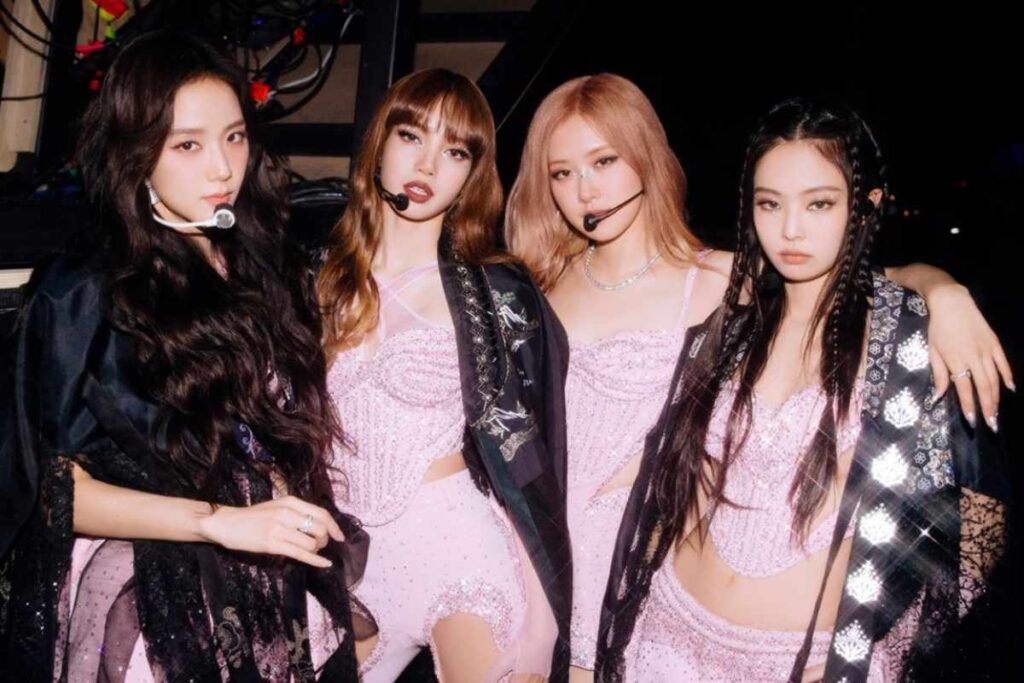






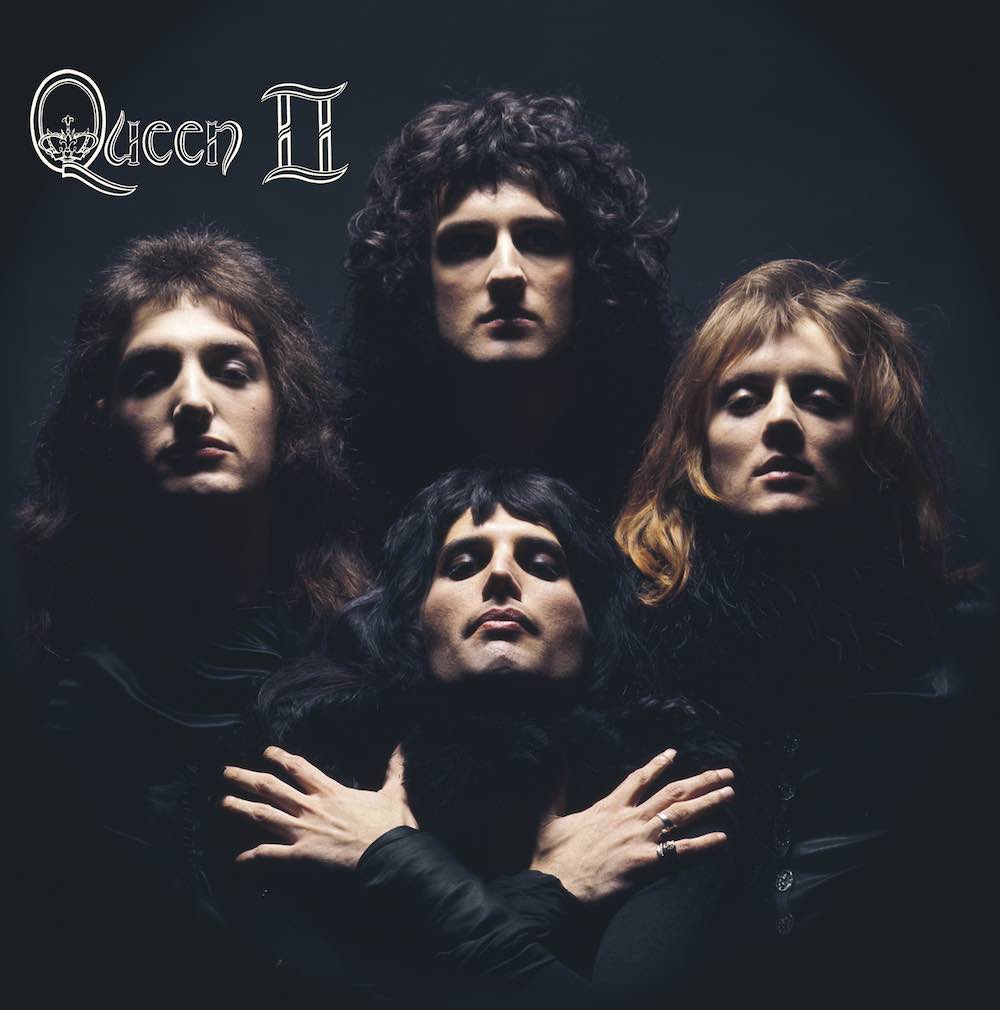



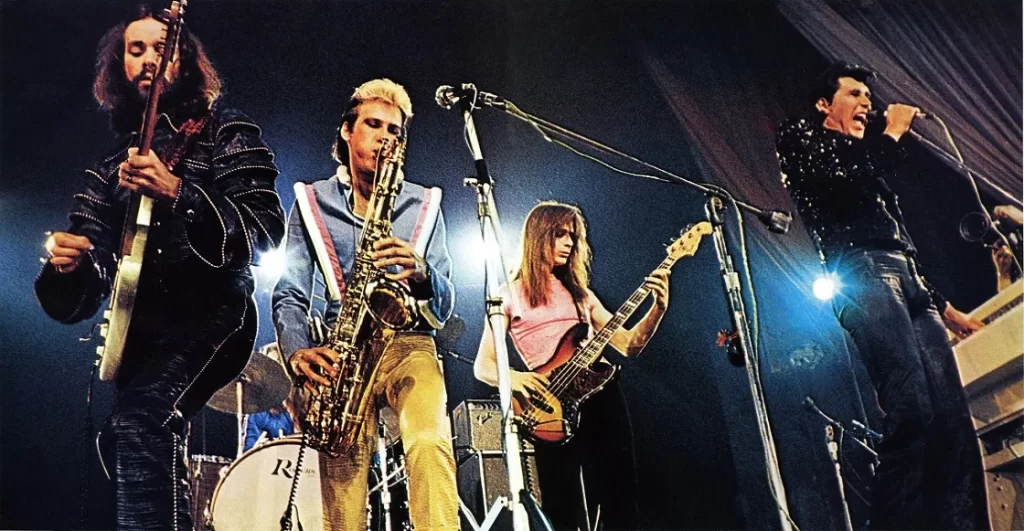













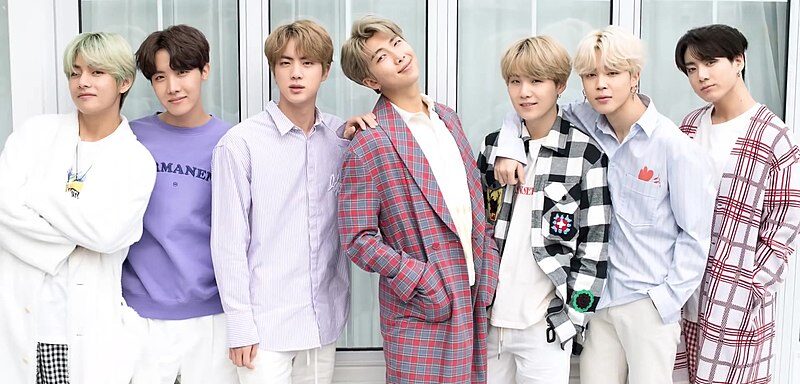


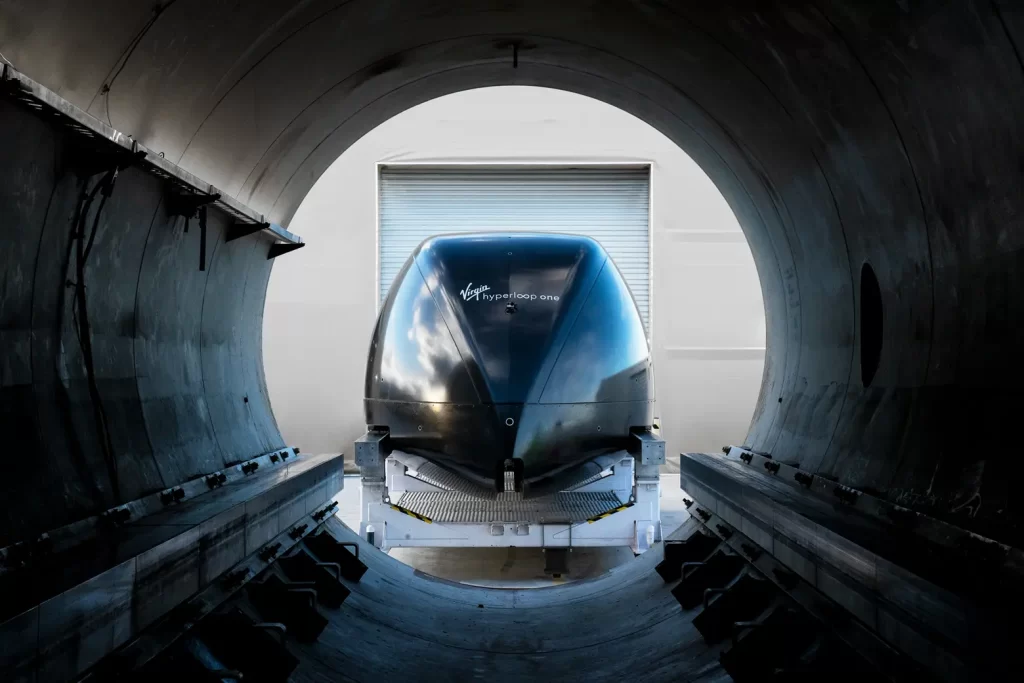








Leave a Reply
You must be logged in to post a comment.